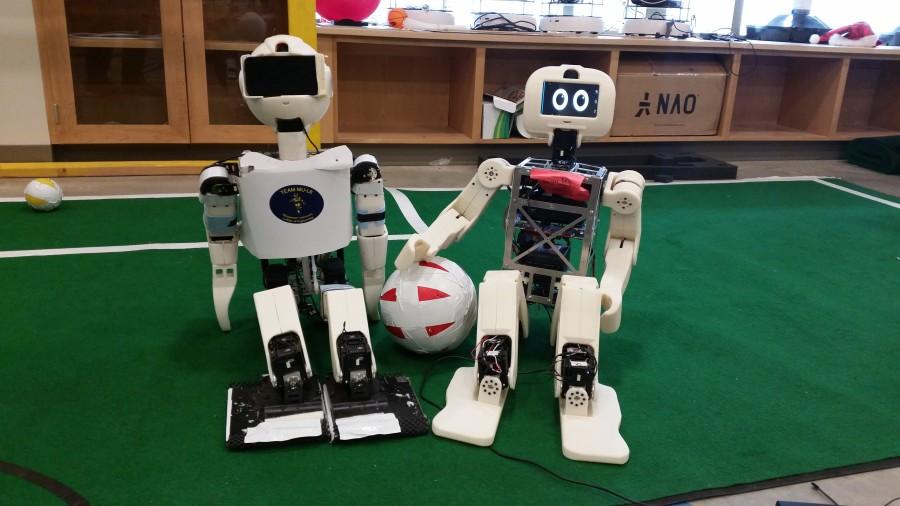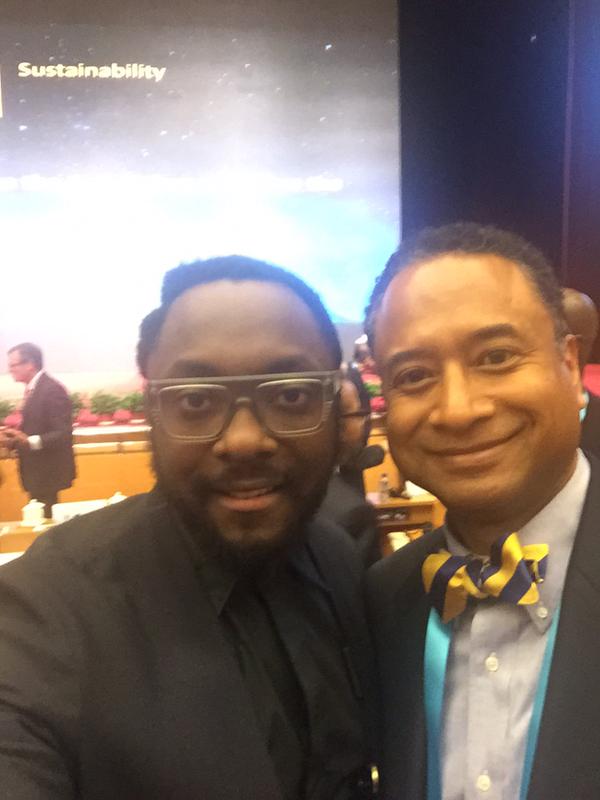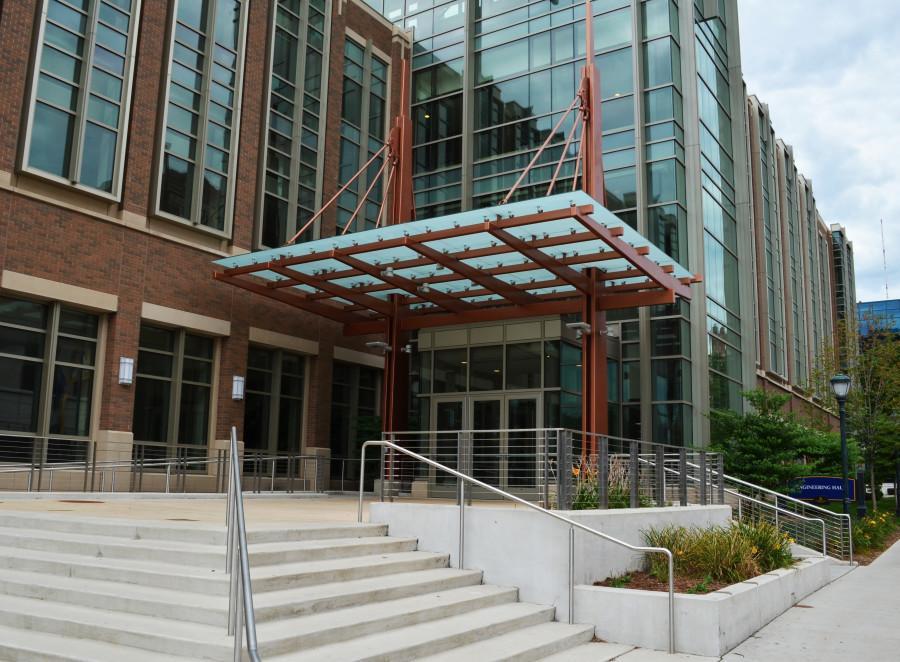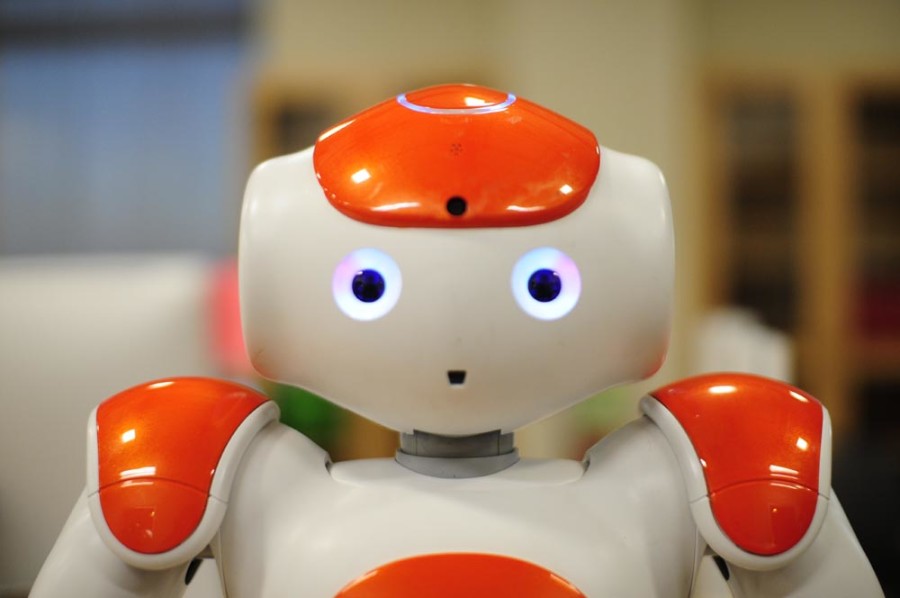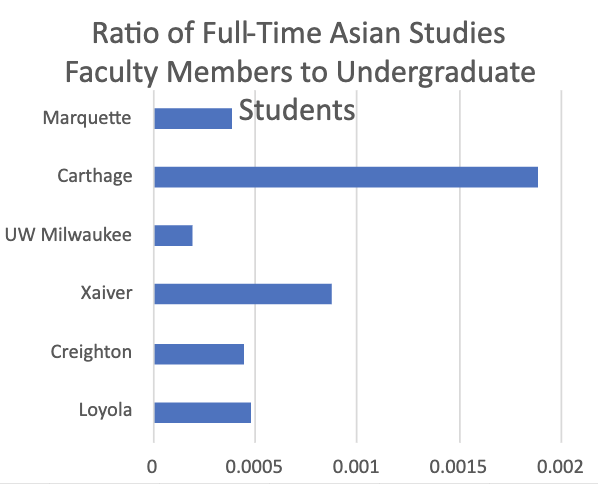The Marquette Humanoid Engineering and Intelligent Robotics Lab qualified for RoboCup 2015, becoming the only team from the U.S. to qualify in its league.
Some students who engineered the humanoid robots will travel to Hefei, China to compete in the teen size league. The team will have the chance to work with the open-source community and improve its robots by working with engineers from around the world.
“It’s a competition in that they play soccer against each other, but that’s really just a front,” said Adam Stroud, a senior in the College of Engineering. “It’s a research competition where people are talking about different ways to do robotics. So everybody shares what they do, even if that means that it helps the other team get a leg up.”
The Marquette team is in contact with teams from Germany and the University of Pennsylvania. Those teams have been around longer than Marquette’s and have members who are PhD or post-doctoral students. Stroud said they are a helpful resource to Marquette’s team, which is mostly made up of undergraduate students.
The HEIR Lab also went to RoboCup 2014 in Brazil last summer and since then the robots were almost entirely reworked. The new robots have 3-D printed limbs that include touch sensors, the ability to stand up after they fall over, are more durable and can switch batteries without having to shut down. That ability is called “hot swapping” and it allows the team to fix any issues that arise during the middle of a game, instead of changing out a battery.
The HEIR Lab team is comprised of people in majors including biomedical engineering, computer science and mathematics. HEIR Lab Director Andrew Williams said that diversity is key to the group’s success.
“You need that type of diversity in order to make a walking, two-legged humanoid robot because not one engineering or science discipline could do it by themselves,” Williams said.
Williams said the majority of work on the software to get the robots ready for RoboCup will be happening this summer. The HEIR lab was led by a senior design project class during the work it did this school year. The class also had assistance from communication students in a Social Media Measurement and Analytics course to increase crowd funding efforts that are helping them afford getting to China.
Phil Batzner, a junior in the College of Communication, is working on the crowd funding project.
“I think what they’re doing is completely revolutionary and groundbreaking in the fact that we are the only university in the country who is building robots like this,” Batzner said. “In five to 10 years when this actually launches outside of RoboCup, when they create robots for the community, it’ll be nice to know that it was something that I was a part of that made a difference.”
Stroud said what sets Marquette’s robots apart from others is their focus on being emotionally responsive and relating to humans. One of the main features of the robots is their eyes, which are smartphones projecting the Smile app.
The app conveys different emotions, understands commands like “stand up” and has a new “learn” setting, which allows the user to teach the robot to associate a certain reaction with a word.
While many other teams are more focused on creating robots that play the best soccer, the HEIR Lab’s robots are created to connect with people socially and help with various problems in society today.
“There are a lot of things in society where humans aren’t willing to spend the time teaching it or there just aren’t enough people to do it or it costs so much money to pay someone to do it,” Stroud said. “If a robot could provide an education to third graders, helping them read and they actually enjoyed it and they benefit from it, then I think that’s a big accomplishment. It’s about building the robot so that people can relate to it and actually gain something from it.”

